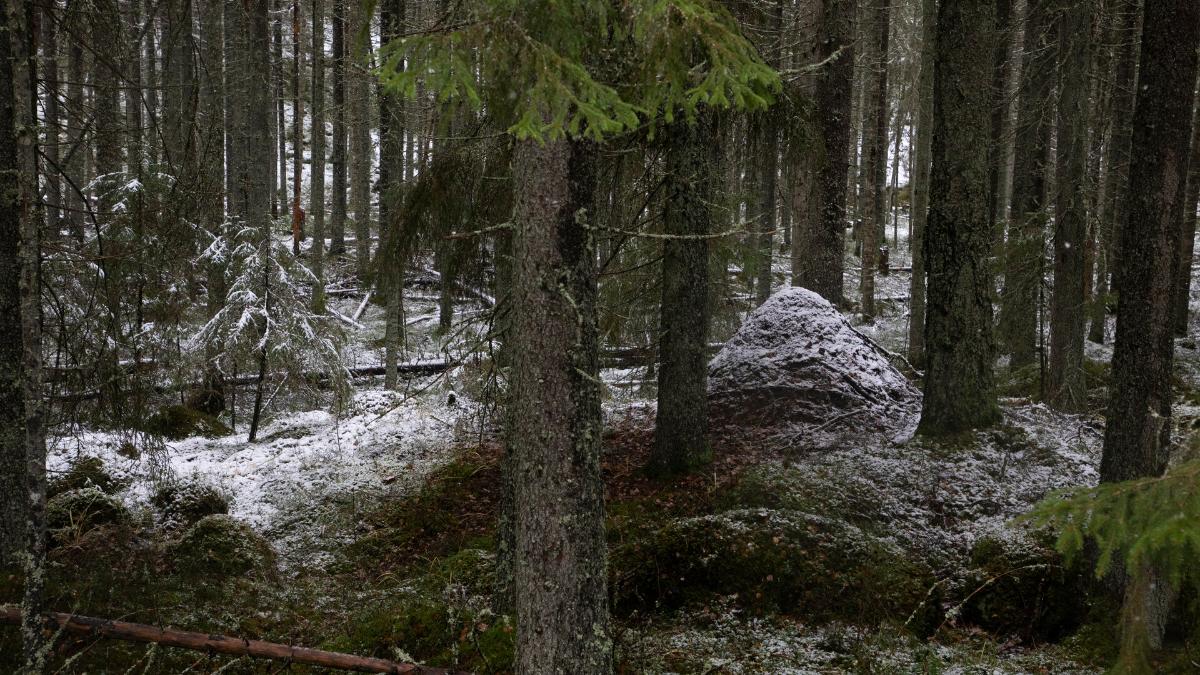Final evaluation: METSO Programme had positive impact on forest biodiversity – next programme period being prepared

The Forest Biodiversity Programme for Southern Finland METSO (2008–2025) has had a positive impact on forest biodiversity. This is the conclusion of the independent final evaluation of the programme. A working group of the Ministry of the Environment and Ministry of Agriculture and Forestry is preparing the next period of the programme that will start in 2026.
According to the evaluation report published on 5 February 2025, the package of conservation measures and actions that support these has been well-balanced and fit for the purpose. The programme has been widely accepted and the implementers have been strongly committed to it. However, the funding and other resources of the programme have not been sufficient to halt the decline in forest habitat types and species.
According to the evaluation, in terms of permanent protection the METSO Programme will reach the target in hectares during 2025. Instead, the environmental forestry subsidy agreements and nature management projects will not reach the quantitative targets set for them. The main reasons for this were the cuts in funding in the administrative branch of the Ministry of Agriculture and Forestry during the programme period, the change negotiations in the Finnish Forest Centre in 2023 that mainly concerned the nature management staff, and the construction of the new information system required to the new forestry subsidy scheme that delayed the approval of the applications until the end of 2024.
Preparations for the next METSO Programme period under way
According to the Programme of Prime Minister Petteri Orpo’s Government, the protection of valuable forest sites owned by private forest owners will continue on a voluntary basis, i.e. under the METSO Programme. A broad-based working group of the Ministry of the Environment and Ministry of Agriculture and Forestry is preparing the next period of the programme that will start in 2026.
“The group’s work should be completed in the early summer 2025. The results of the final evaluation of the period that has now ended will be taken into account in the preparation, as appropriate,” says Senior Ministerial Adviser Päivi Gummerus-Rautiainen from the Ministry of the Environment.
When completed, the proposal of the working group will be circulated for comments. The operating environment of the next METSO Programme will be influenced by changes in the organisational structures and changes caused by wood production and other land uses, EU and national policies and climate change.
Report gives recommendation for the preparation
The final evaluation report on the METSO Programme recommends that the diverse set of tools to conserve private forests should be continued and expanded to safeguard nature values in commercial forests. Besides the cost-based compensations, the deployment of result-based incentives should be tested.
According to the evaluation, halting biodiversity loss requires more extensive and connected areas protected through various means. Measures to be considered to create such areas include increasing the surface area of the sites eligible for environmental subsidies, introduction of nature management plans, and incentives to form larger areas. Cooperation between private forests and forests owned by the State and municipalities in the development of the conservation network should be increased.
The evaluation stressed, on the one hand, the need to target conservation to areas where the protected area is small and the pressure to utilise the forests is great, even if the sites were not first-class in terms of their conservation value. On the other hand, the evaluation pointed out that in certain regions, such as in Kainuu, there are valuable (class I) sites in terms of their nature values that are excluded from the conservation due to the regional objectives and limited resources. For setting the targets, the evaluation recommended a hybrid model that would combine the two approaches and reduce their weaknesses.
According to the evaluation report, the METSO Programme could focus on private forests in future, but cooperation and transfer of knowledge with the State and municipalities is important. In research the emphasis should be on developing the measures and monitoring their impacts. Communication has an important role in supporting the effectiveness of the programme, and its monitoring should shift towards assessing the impact of communication.
However, according to the report, the key issue in terms of a successful new period would be that the Government would make a long-term and predictable commitment to allocating the funding and resources for the operators in line with the objectives. The opportunities related to private sources for supplementing the programme funding should also be explored.
The final evaluation of the METSO Programme was conducted by Pellervo Economic Research PTT and its subcontractor Sweco Finland Ltd, commissioned by the Ministry of the Environment and Ministry of Agriculture and Forestry.
The METSO Programme is a joint project of the Ministry of the Environment and the Ministry of Agriculture and Forestry. The Government issued the Resolution on the Forest Biodiversity Programme for Southern Finland (METSO) for the period 2008–2016 in 2008. Due to economic reasons, it was not possible to reach the objectives of the programme during that period, which is why the programme was extended for the period 2014–2025 (Government Resolution of 2014). The Resolution of 2008 was preceded by a trial period in 2002–2007.
Inquiries:
Päivi Gummerus-Rautiainen
Senior Ministerial Adviser, Ministry of the Environment
+358 295 250 240
[email protected]
Ville Schildt
Senior Ministerial Adviser, Ministry of Agriculture and Forestry
+358 295 162 190
[email protected]
Paula Horne
Research Director, Pellervo Economic Research PTT
+358 40 592 6820
[email protected]
